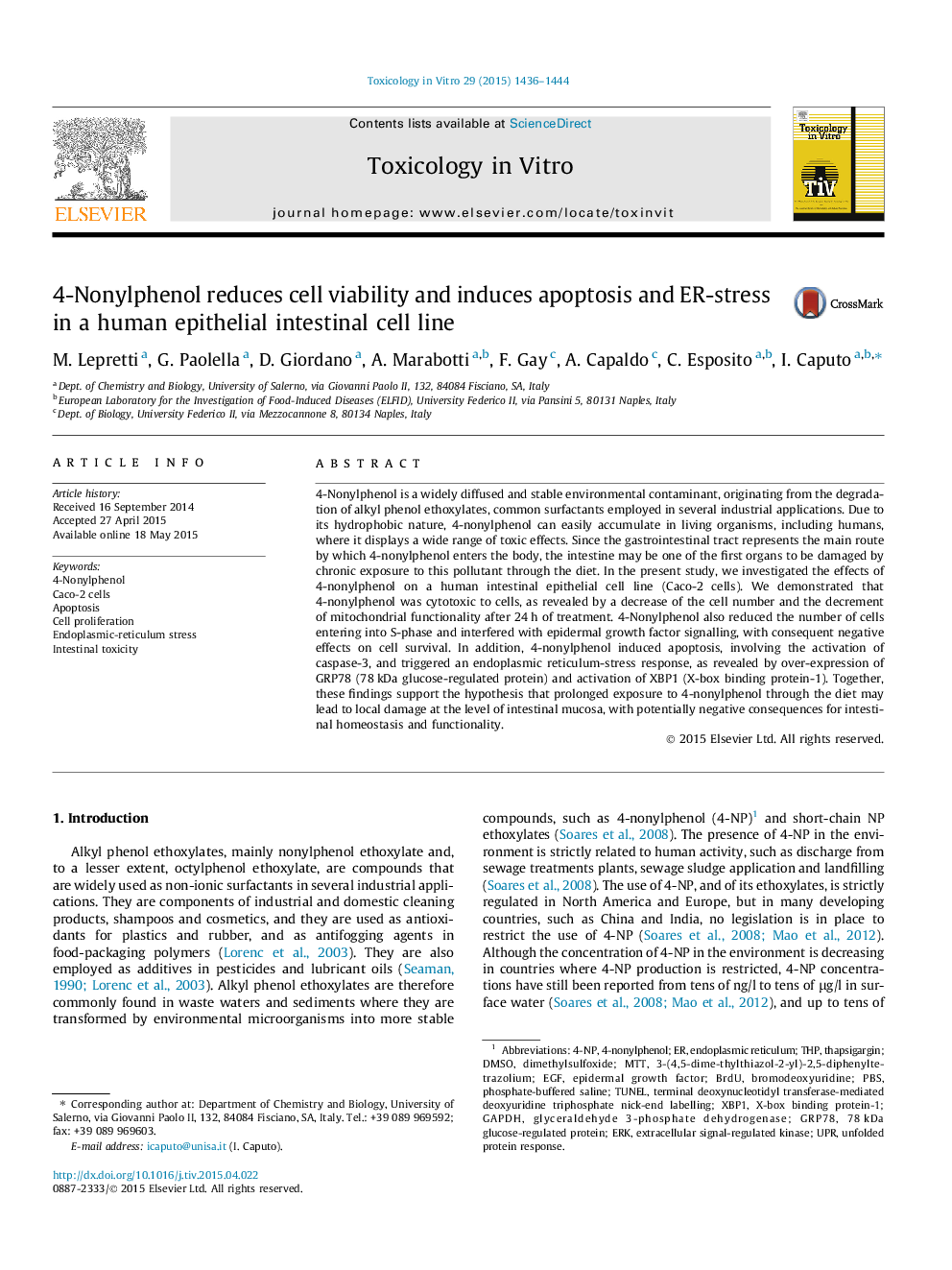| Article ID | Journal | Published Year | Pages | File Type |
|---|---|---|---|---|
| 5861368 | Toxicology in Vitro | 2015 | 9 Pages |
Abstract
4-Nonylphenol is a widely diffused and stable environmental contaminant, originating from the degradation of alkyl phenol ethoxylates, common surfactants employed in several industrial applications. Due to its hydrophobic nature, 4-nonylphenol can easily accumulate in living organisms, including humans, where it displays a wide range of toxic effects. Since the gastrointestinal tract represents the main route by which 4-nonylphenol enters the body, the intestine may be one of the first organs to be damaged by chronic exposure to this pollutant through the diet. In the present study, we investigated the effects of 4-nonylphenol on a human intestinal epithelial cell line (Caco-2 cells). We demonstrated that 4-nonylphenol was cytotoxic to cells, as revealed by a decrease of the cell number and the decrement of mitochondrial functionality after 24Â h of treatment. 4-Nonylphenol also reduced the number of cells entering into S-phase and interfered with epidermal growth factor signalling, with consequent negative effects on cell survival. In addition, 4-nonylphenol induced apoptosis, involving the activation of caspase-3, and triggered an endoplasmic reticulum-stress response, as revealed by over-expression of GRP78 (78Â kDa glucose-regulated protein) and activation of XBP1 (X-box binding protein-1). Together, these findings support the hypothesis that prolonged exposure to 4-nonylphenol through the diet may lead to local damage at the level of intestinal mucosa, with potentially negative consequences for intestinal homeostasis and functionality.
Related Topics
Life Sciences
Environmental Science
Health, Toxicology and Mutagenesis
Authors
M. Lepretti, G. Paolella, D. Giordano, A. Marabotti, F. Gay, A. Capaldo, C. Esposito, I. Caputo,
